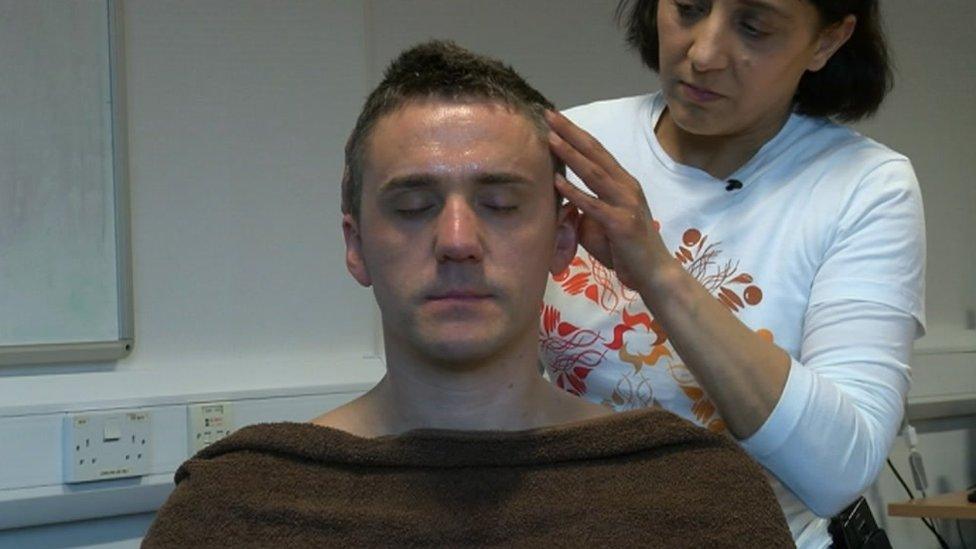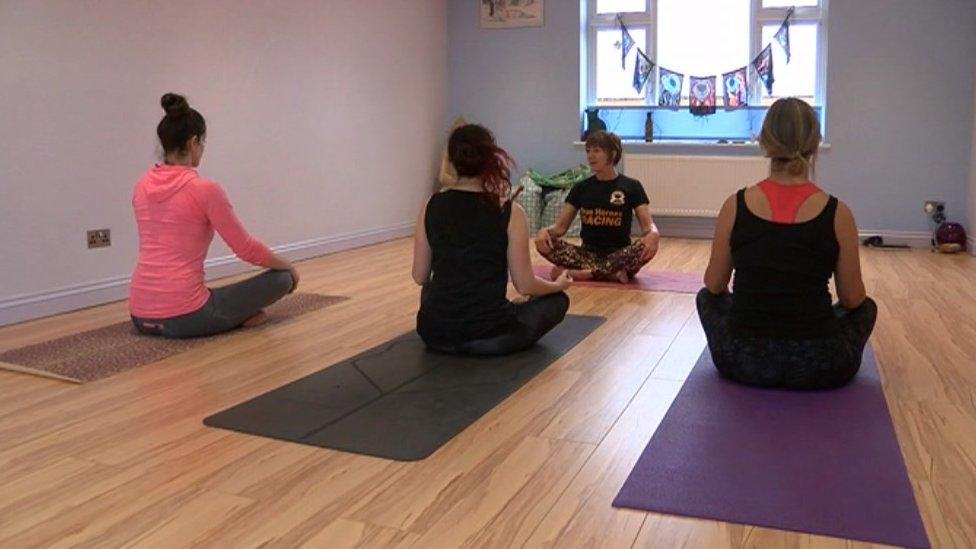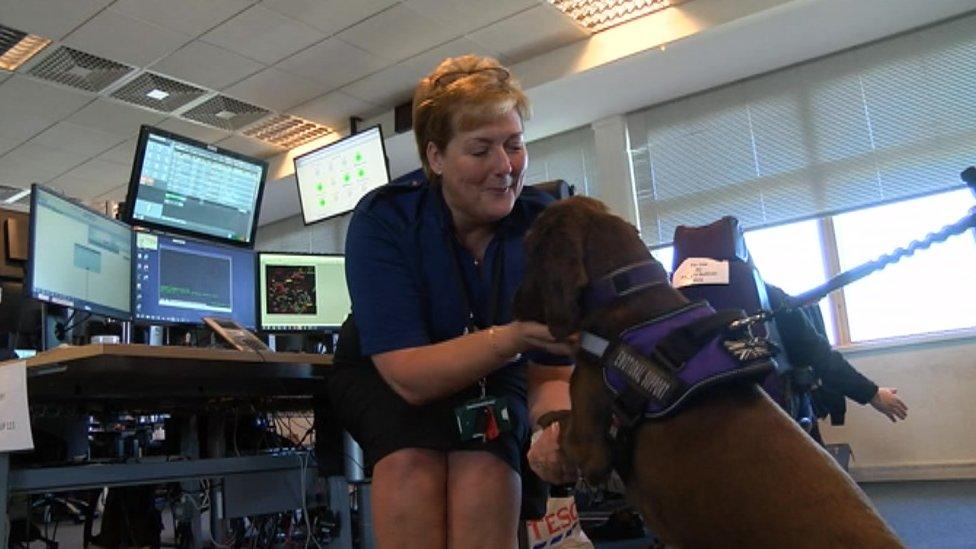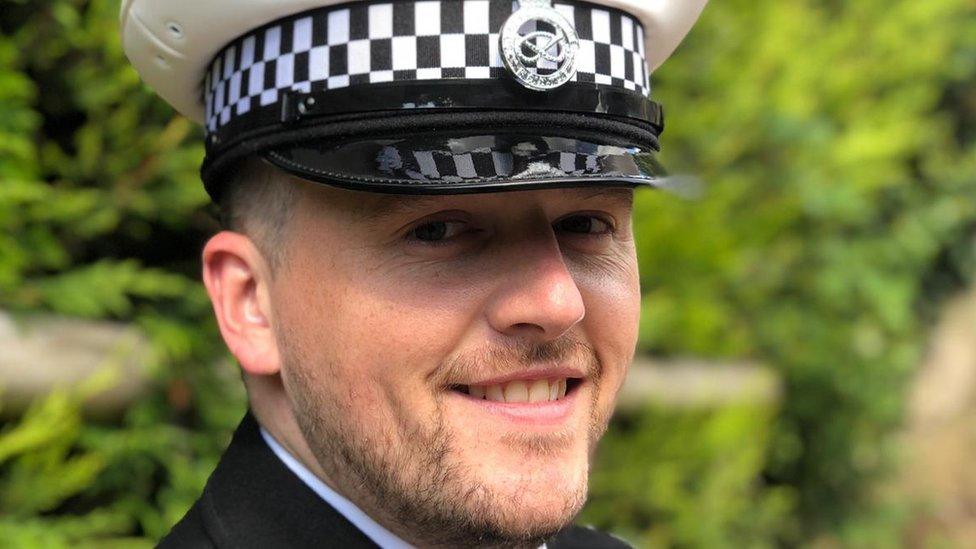Police need standardised access to stress relief, Federation says
- Published

The Federation praised some forces - such as Nottinghamshire - for introducing methods such as massage to combat stress
Standardised health services are needed to help forces in England and Wales tackle stress, the Police Federation has said.
Ché Donald, from the Federation, said stress remained a "massive issue" and austerity measures had "eradicated" occupational health departments.
However, he praised forces such as Leicestershire for introducing methods such as yoga to reduce stress.
The Home Office said it is investing in support programmes for officers.

The Federation is calling for a standardised delivery of support services, such as yoga - which has been offered by Leicestershire Police
Mark Botham, a sergeant at Nottinghamshire Police, told the BBC: "I worked in a custody block with high-risk and vulnerable people and constant demands. I noticed I'd be coming home and not wanting to talk about my day. I'd be boxing it off. I wouldn't be able to sleep because it's swirling around in my head."
He said things had improved on his force. "[It's] definitely better than in the past. We're having open conversations and staff are happy saying they're a bit stressed-out."
But Mr Donald, national vice chair and mental health lead for the Police Federation of England and Wales - the forces' statutory staff association - said access to services was not consistent.
He called for a "standardised delivery of occupational health services across the policing service".
"If an officer works in Nottingham or Surrey and they suffer with stress, they [should] expect the same type of assistance when they put their hand up and require it," he said.
"The problem we've had is that policing is seen as a gung-ho culture and the stigma that's been attached around mental health, stress or anything in that realm is not addressed because it's one of those areas where you're meant to have a stiff upper lip."

Some forces have therapy pets to help staff
The Federation praised forces that have tried to combat such a culture by introducing different types of therapy, ranging from yoga - offered by Leicestershire Police - and massage treatments, which is available to staff at Nottinghamshire, to office pets and hypnotherapy.
Leicestershire Police said: "Yoga classes are offered to officers and staff to assist in reducing stress, boost the immune system and calm the mind.
"The aim behind the initiative is to support the wellbeing of colleagues and provide balance to busy jobs and busy lives."
However, the Federation said it would like to see ring-fenced funding to ensure all forces had a similar level of occupational health provision.
Currently, the organisation said, such services could vary widely and budget constraints meant such "softer services" could be the first things to be cut.
Figures released to the BBC under the Freedom of Information Act last year showed more than 5,000 police officers, serving with 29 out of the UK's 48 forces, took time off sick for mental health reasons during 2018-19, compared with just over 4,300 in 2014-15.
Last month Home Secretary Priti Patel launched an eight-week consultation on plans to enshrine a police covenant in law, that would back the rights of current and former officers and staff and recognise the risks and responsibilities that came with a police career.
A Home Office spokesperson said the covenant would focus on "physical protection for police, their health and wellbeing, as well as support for their families".

Follow BBC East Midlands on Facebook, external, Twitter, external, or Instagram, external. Send your story ideas to eastmidsnews@bbc.co.uk.
- Published16 October 2019

- Published9 May 2019